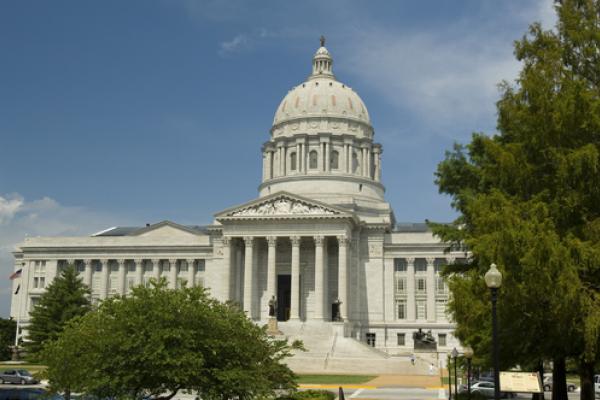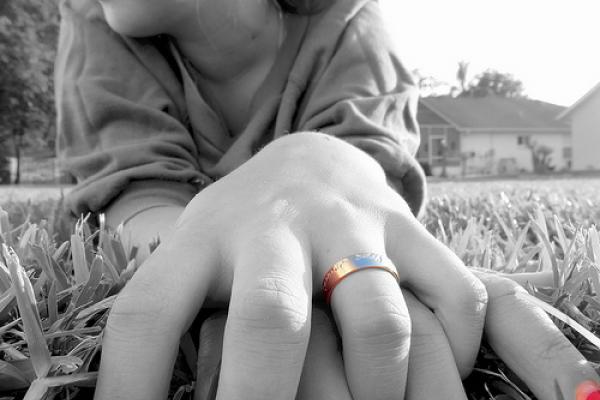“Indeed, a quick glance around this broken world makes it painfully obvious that we don't need more arguments on behalf of God; we need more people who live as if they are in covenant with Unconditional Love, which is our best definition of God.” - Robin R. Meyers, from Saving Jesus from the Church
"Jesus said to them, 'The light is with you for a little longer. Walk while you have the light, so that the darkness may not overtake you. If you walk in the darkness, you do not know where you are going. While you have the light, believe in the light, so that you may become children of light.'" - John 12:35-36
Lamb of God, you take away the sins of the world. Have mercy on us. Grant us peace. For the unbearable toil of our sinful world, we plead for remission. For the terror of absence from our beloved, we plead for your comfort. For the scandalous presence of death in your creation, we plead for resurrection. Come, Holy Spirit, and heal all that is broken in our lives, in our streets, and in our world. [In the name of God the Creator, the Redeemer, and the Sustainer.] Amen.
The prayer for today is excerpted from "Prayers for Peace Offered to the Victims of Wisconsin Shooting" which is featured on the God's Politics blog.
I heard about the shooting at the Sikh temple in the middle of leading worship. It was the same space where two months ago we buried a child killed by gun violence. It was the same space where two weeks ago we prayed for the community of Aurora. And now we were gathered again and like the family of an addict we were left with the pain of a destructive lifestyle.
We wept. We prayed. We sang.
I stood up and said, “We have prayed. And there is power in prayer. Change can happen with prayers. And we pray for brothers and sisters who worship a different God than ours and yet we call them our family. We pray for the shooter because we are taught to pray for our enemies. But prayer is not enough."
Since Sunday's terrible shooting at a Sikh temple outside of Milwaukee, Wis., faith communities have been extending their support, thoughts, and prayers to the faith community.
As Christians, we are called to be a voice for peace and nonviolence — to stand against a culture of violence that has allowed for two such hateful acts in three weeks. We at Sojourners extend our deepest sympathis, our prayers lifted high, for all of those affected by the senseless tragedy.
Lamb of God,
you take away the sins of the world.
Have mercy on us.
Grant us peace.
For the unbearable toil of our sinful world,
we plead for remission.
For the terror of absence from our beloved,
we plead for your comfort.
For the scandalous presence of death in your creation,
we plead for resurrection.
Lamb of God,
you take away the sins of the world.
Have mercy on us.
Grant us peace.
Come, Holy Spirit, and heal all that is broken in our lives, in our streets, and in our world. In the name of the Father, and of the Son, and of the Holy Spirit. Amen.
— from Common Prayer
Please comment here to add your thoughts and prayers.
From The Washington Post:
If this small nation, with a per capita income of less than $3 a day and a life expectancy of 53, offers a hopeful model for fighting the scourge of AIDS in Africa, then large and relatively prosperous Uganda shows how quickly progress can run off track.
Secretary of State Hillary Rodham Clinton saw Malawi’s more promising example Sunday as part of an eight-nation African visit. Last week in Uganda, she highlighted an alarming rise in infection rates there after years when the country was a leader in preventing the spread of HIV and AIDS. About 23 million people in sub-Saharan Africa are believed infected, and the United Nations has estimated that the region had 1.2 million AIDS-related deaths in 2010.
Read more here
Duke professor Dan Ariely writes for The Atlantic:
The inequality of wealth and income in the U.S. has become an increasingly prevalent issue in recent years. One reason for this is that the visibility of this inequality has been increasing gradually for a long time--as society has become less segregated, people can now see more clearly how much other people make and consume. Owing to urban life and the media, our proximity to one another has decreased, making the disparity all too obvious. In addition to this general trend, the financial crisis, with all of its fall out, shined a spotlight on the salaries of bankers and financial workers relative to that of most Americans. And on top of these, and most recently, the upcoming presidential election has raised questions of social justice and income disparities, bringing the issues into focus even more.
Check out the piece for more insight
As reported by The Associated Press last week:
Locking up illegal immigrants has grown profoundly lucrative for the private prisons industry, a reliable pot of revenue that helped keep some of the biggest companies in business.
And while nearly half of the 400,000 immigrants held annually are housed in private facilities, the federal government — which spends $2 billion a year on keeping those people in custody — says it isn't necessarily cheaper to outsource the work, a central argument used for privatization in the first place.
The Associated Press, seeking to tally the scope of the private facilities, add up their cost and the amounts the companies spend on lobbying and campaign donations, reviewed more than 10 years' worth of federal and state records. It found a complex, mutually beneficial and evidently legal relationship between those who make corrections and immigration policy and a few prison companies. Some of those companies were struggling to survive before toughened immigrant detention laws took effect.
Read more here
Missourians will vote on Tuesday on a proposed amendment to the state constitution that supporters say would protect residents' right to pray in public. If a recent poll is any indication, it could pass by a mammoth margin.
Supporters say the so-called "right to pray" ballot measure — known as Amendment 2 — better defines Missourians' First Amendment rights and will help to protect the state's Christians, about 80 percent of the population, who they say are under siege in the public square.
Opponents, meanwhile, say that the religious protections Amendment 2 would offer are already guaranteed by the Bill of Rights and the U.S. Constitution, and that it will open the door to all manner of unintended and costly consequences including endless taxpayer-funded lawsuits.
"Chastity is getting a makeover. Surrounded by a sex-saturated society, millions of young people are pledging to remain virgins until their wedding night. But how, exactly, are evangelical Christians convincing young people to say no when society says yes?"
So writes Christine J. Gardner in her brilliant new book Making Chastity Sexy: The Rhetoric of Evangelical Abstinence Campaigns.
Making Chastity Sexy is important and perceptive in a profound way that casts light on a large subject — religion in general and evangelicalism in particular when it comes to attitudes toward sex, life, and religion.
Gardner (an evangelical herself who teaches at an evangelical school) takes her readers far beyond the mere investigation of sex education/abstinence campaigns to make the point that individualistic society and the autonomous self have become the sole means of the "wait until marriage" virginity-sanctifying movement.
In other words the evangelicals are using pop culture techniques just to make abstinence "sexy."


